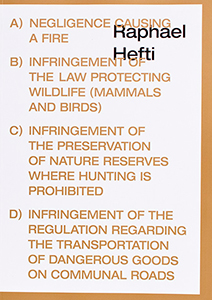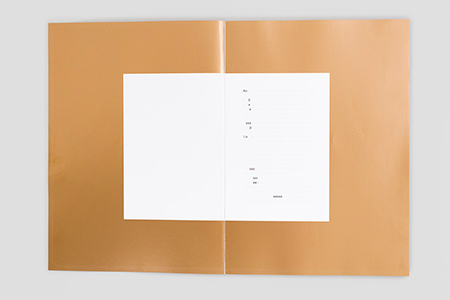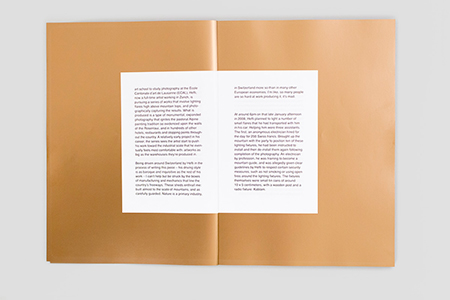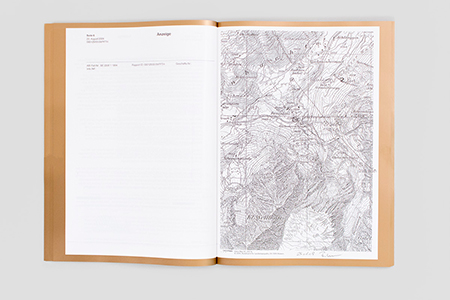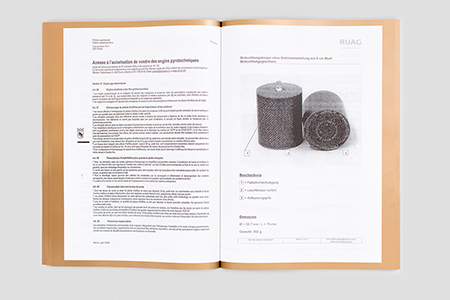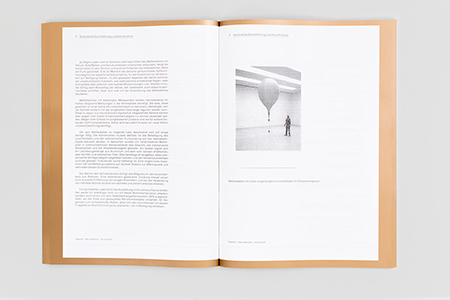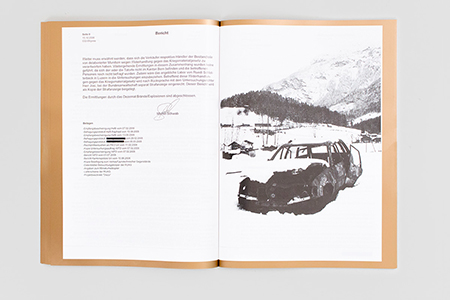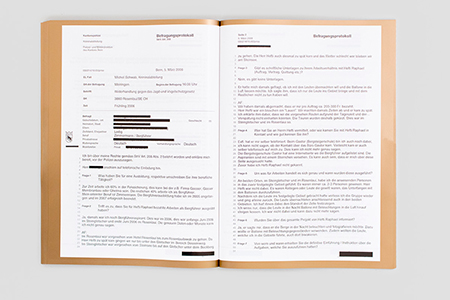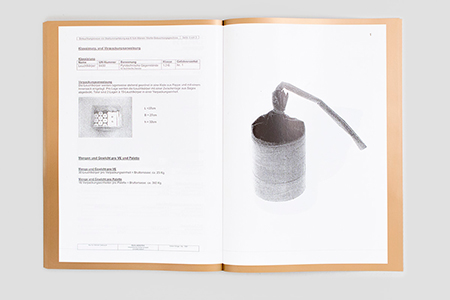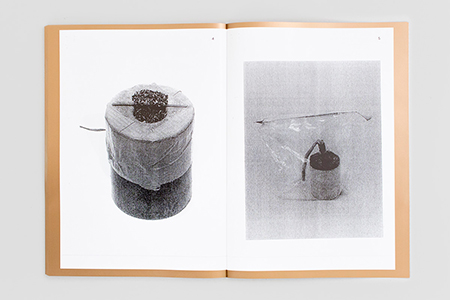Poet
Harry Burke recounts an extreme and barely legal experiment led by artist Raphael Hefti in a mountain village in Switzerland in 2008 (artist's book).
In the art practice of Raphael Hefti, manufacturing processes are pushed to extreme limits to effect epic material transformations. These are guided accidents in industrial alchemy that test the points of failure in everyday materials. But in 2008, while working on a new project in a remote mountain village in Switzerland, a different type of failure transpired. In this publication, writer and poet Harry Burke retraces the story of over two dozen dubiously acquired explosives, thirty three firemen, an arms manufacturer, a bomb squad, an international travel ban, a thick dossier of police reports and a totaled Benz.
Raphael Hefti (born 1978 in Biel, Switzerland, lives and works in London and Zurich) has a singular approach to experimentation with materials: fascinated with processes and often inventing his own, he blurs boundaries between natural and industrial, abstract, and representational. He frequently collaborates with technicians and scientists to reveal unexpected beauty in ordinary materials, referring to processes that otherwise remain invisible but which form the crucial substructure of contemporary culture.
Recent solo exhibitions by Hefti include
CAPC Bordeaux (2013), White Cube Gallery, London (2013) and Camden Arts Centre, London (2012). He was also included in the group exhibitions “Flex-Sil Reloaded” at the Kunsthalle St. Gallen (2013), “How to Work (More For) Less” at the Kunsthalle Basel (2011), “Minimal Myth” Museum Boijmans in Rotterdam (2012), and in 2012 he won the Swiss Art Award national prize.

